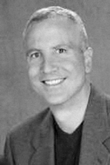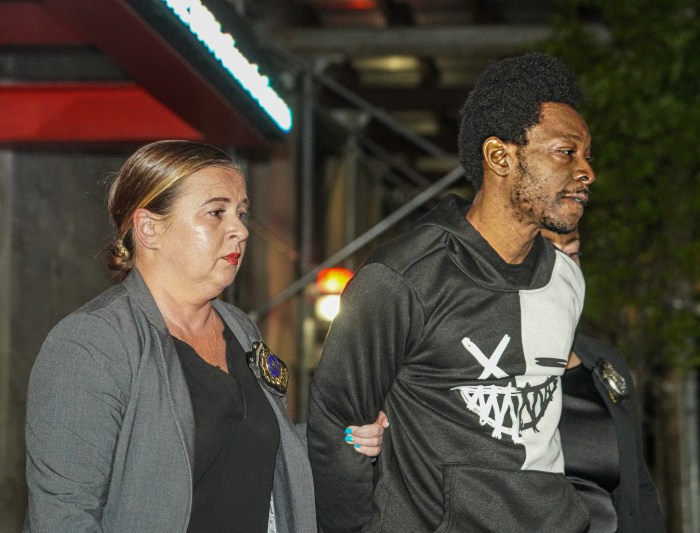Two groups press 2006 anti-gay referendums; Task Force joins forces with locals
Battle lines are forming in California for what advocates are calling a decisive campaign in the war for lesbian and gay equality across the country. Two proposed constitutional amendments, currently at the signature-gathering stage, would not only ban gay marriage in the nation’s largest state, but would also entirely erase the state’s domestic partnership laws, in effect since 1999, which are some of the most nation’s most comprehensive.
During the past two years, close to 20 states have enacted anti-gay-marriage amendments to their constitutions, and more will be on the ballot in 2006.
“California is critical in keeping the dream of marriage alive,” said the leader of the National Gay and Lesbian Task Force, Matt Foreman. “If we win in California—there will be momentum for years to come. If we lose—marriage may forever be limited to a few states.”
The author of California’s gay marriage measure—approved by the Legislature this past summer only to be vetoed by Republican Governor Arnold Schwarzenegger—Mark Leno, a gay San Francisco Democratic assemblyman, said the initiatives will be “the fight of our lives.”
This week the state’s major gay rights organization, Equality California, announced it has added five employees to its 15-person staff, has opened five new field offices around the state, and plans to open two more.
“This will put our resources on the ground where the legislators and voters who will decide on our issues live,” said Geoff Kors, the group’s executive director. “It’s to defeat the initiatives, to elect legislators who will vote for equality and educate the public about our lives. These regional offices will provide a way for members of our community who live throughout the state to participate in the fight for their equality.”
The Task Force’s Foreman predicts the defensive battle will cost at least $15 million. Kors called that estimate a “minimum.” Kors’ group and the Task Force are partnering with several other gay and non-gay civil rights organizations in a campaign committee, Equality for All, which will manage the vote drive.
Both California and New York are usually major net contributors to the Task Force—which then distributes the money raised to other states where needs are greater, but money isn’t available locally. But early in November, at the Task Force’s “Creating Change” conference in Oakland, Foreman and his board co-chair, Jeff Soref, pledged to use all money they raise in California on defeating the initiatives. Three Task Force staff members are already on the ground in Southern California.
The sponsors of the anti-gay measures must get almost 600,000 signatures by April 13 to qualify for the ballot. If they succeed, they will get to choose either the June or November ballots next year. The state holds its gubernatorial primary in June, which is more likely to bring out Democrats—and gay rights supporters—in a hotly contested race, while Shwarzenegger may run unopposed on the GOP side. Kors thinks that November is the more likely choice anti-gay forces will seek.
For now, the anti-gay forces are in some degree of disarray. Two different groups are pursuing their own efforts, both aimed at simultaneously barring gay marriage and eviscerating the domestic partnership statutes. The Traditional Values Coalition is teamed up with Randy Thomasson’s Campaign for California Families on one approach on which they tangled for months with the secretary of state’s office over how explicit the measure’s title and summary needed to be regarding the rollback of partnership rights. Those groups have yet to collect a single signature.
The other measure, supported by the state’s Capitol Resource Institute, has the backing of Colorado-based Focus on the Family and the Family Research Council. Published reports say that this second group has almost 200,000 signatures already, but organizers would not confirm that figure.
A recent poll found that California is split 46 percent to 46 percent on the question of gay marriage, but as many as 70 percent of the state is reported to favor some form of domestic partnership rights. So gay rights advocates are hoping the anti-gay groups have gone too far.
“Yes,” conceded the Traditional Values Coalition’s Ben Lopez, “but gay advocates were very sly in creating counterfeit marriages. But there was a reasonable difference of opinion on the right as to how far you want to go.”
Gay rights advocates are also not without their organizational problems. While the Task Force says it has made the California initiatives one of its top two priorities and issued the commitment to keep money raised there in the state, the nation’s largest gay rights organization, the Human Rights Campaign, based in the nation’s capital, has yet to quantify its contribution to the effort. Both HRC and the Task Force contributed $100,000 in seed money and HRC’s marriage project director Seth Kilbourn said his group is “100 percent committed” to the campaign. But, while pledging that HRC’s support will be “significant,” Kilbourn declined in an interview Wednesday to discuss dollar amounts.
HRC is not only the largest gay rights organization in the country, its $30 million annual budget last year amounted to over half of the total contributed to all national gay rights groups combined. HRC won’t release figures about how much of that comes from California, but observers say that, like the Task Force, a major percentage comes from there and New York. At their annual black-tie dinner in Los Angeles two years ago, presenters announced they had raised over $1 million—in one night.
California gay rights activists have expressed irritation with HRC over a new souvenir shop, one of three across the nation, which the group opened last month a block from the center of San Francisco’s Castro District. It sells dozens of logo-branded items including T-Shirts, coffee cups, drinking glasses, chairs, dog bowls, and even custom-made Christmas ornaments. The other two shops are in other gay meccas—Provincetown and Dupont Circle in Washington. One of two managers of the San Francisco shop, Fidel Chavoya, said that its main purpose is “letting people know who we are,” getting the HRC’s trademark logo, an equal sign, in front of people—“getting the branding out there”—and signing up members.
Kors, however, complained that HRC, with its fund raising, is draining away part of a precious and limited pool of donor money that could be used at a critical time to fight the initiatives. He said gay rights efforts must focus on building resources and infrastructure in California where the work needs to be done, “not on branding and marketing.”
For now, both Kors and Leno are hedging about any effort to reintroduce the marriage bill that Schwarzenegger vetoed earlier this year. They explained that they are reluctant to divert effort and resources from the battle against the anti-gay initiatives. But, both conceded that forcing the governor to weigh a second veto just weeks before the 2006 election could be a good tactic.
Leno said he wants to consult with constituent groups. “No one person has final say,” he said. “No one person has the final wisdom.”
The assemblyman agreed that input from leading Democratic gubernatorial hopefuls—Steve Westly and Phil Angiledes—who have both pledged to sign a marriage bill, will also be important.
gaycitynews.com






























